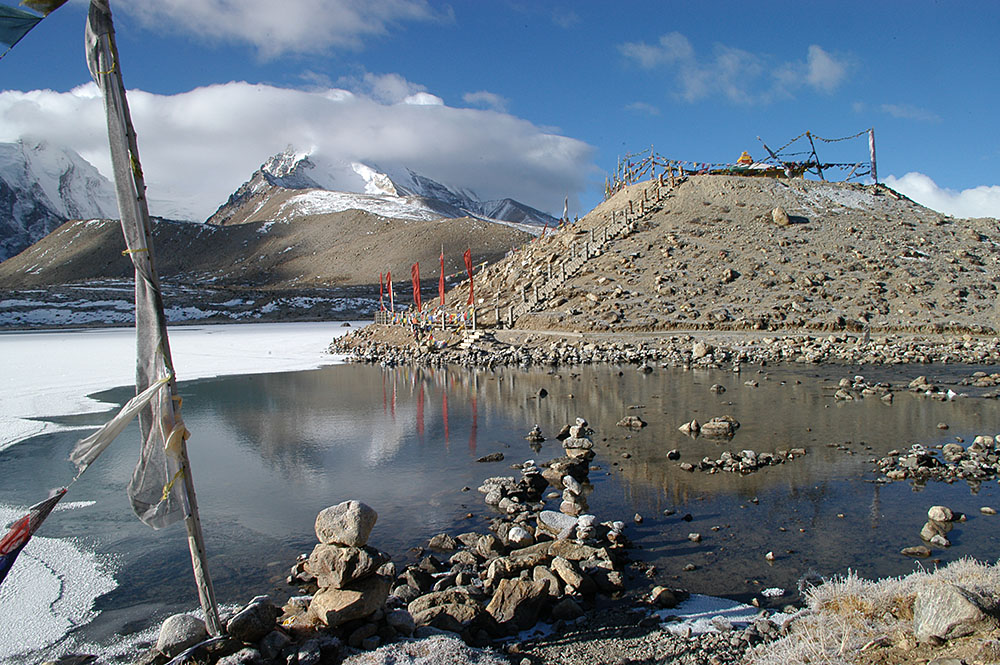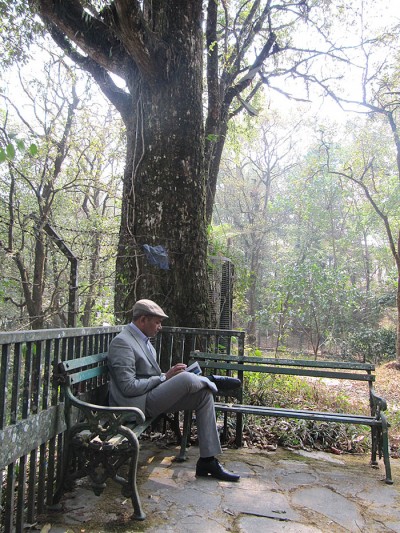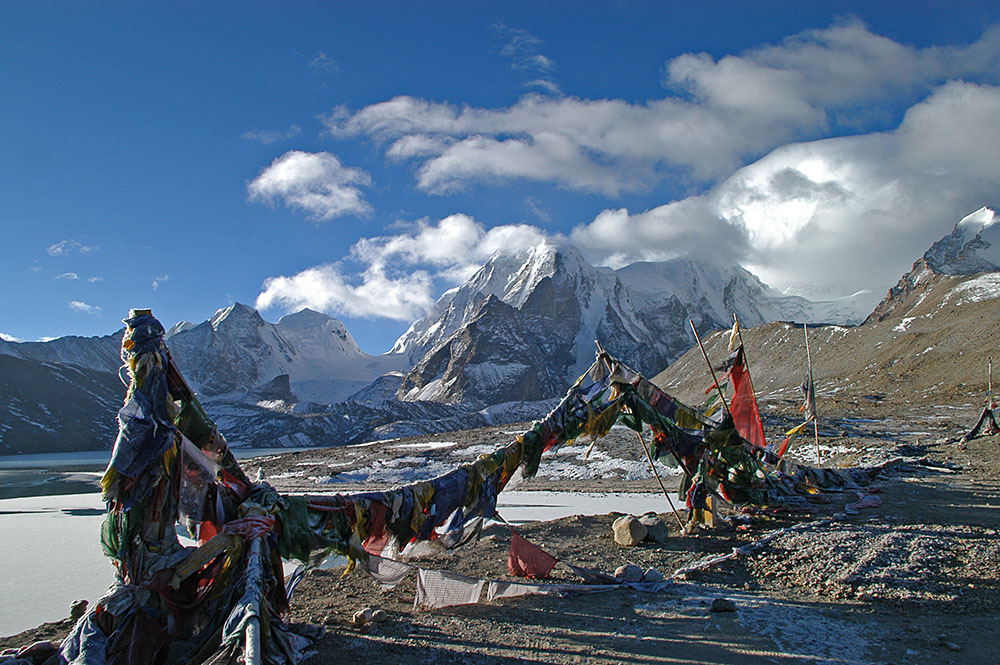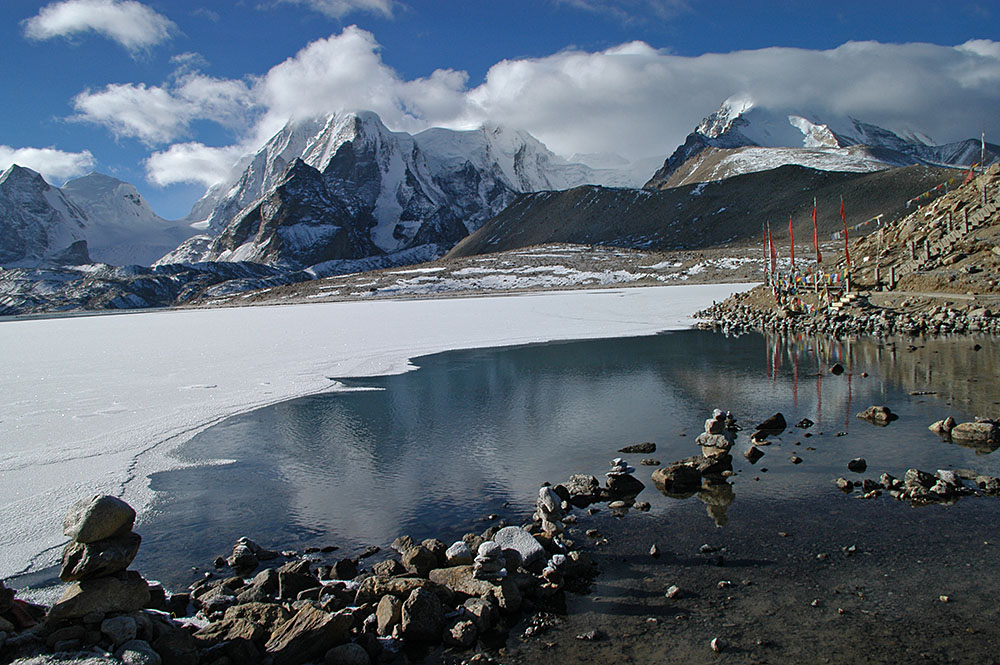
 In Sikkim
In Sikkim
air is all sound
of chirping birds,
crowing roosters
hills wrapped in morning mist
never-ending green
in the heart of Gangtok
flowers are all smile to the sun
love-birds singing ancient songs
Rumtek is a throne of lights
a believer’s earthly paradise
time’s a quicksand and
the last dusk
I catch a glimpse of the wild
a book in my hands
under the city’s shimmering lights
cheerful evening choirs
I gently quit
the shores of Sikkim
a heavenly island
in the skies.

About the Poem
On my way to Sikkim from Darjeeling, I stop at Lapchu Bazaar for breakfast. Cherry blossoms abound at the roadside dhaba and the air is filled with sounds of chirping birds and crowing roosters. All this against a backdrop of hills wrapped in the morning mist, and I lose myself in the green abandon. Sauntering, I come across the statue of the handsome Virendra Thapa who lost his life during the Kargil War. And I am filled with a sudden and incomprehensible sadness.
I know I’m in Sikkim when I’m welcomed by an ornamental gate and a few security guards. After half an hour or so of driving around the winding mountain roads, I reach Gangtok. Losing no time, I set out to explore the heart of the city. MG Road, named after Mahatma Gandhi, is a pedestrian-only street divided by a lovely row of flowers. Making my way through this road, I reach the Sikkim Akademi, where its president Dr Pempa Tamang greets me and invites me to join a gathering of poets. The local poets begin their recitation and I spot noted poet Rajendra Bhandari among them. They invite me to recite my poems as well, and afterwards, Dr Tamang presents his critical views on contemporary poetry written in Sikkim.
Next day I visit the famous Rumtek Monastery, which houses the Karmapa of the Kagyu sect, one of the sects within Tibetan Buddhism. A Lama tells me that two monks have made claims to the Karmapa role and that the matter has been taken to court. I feel sad hearing it.
On my last evening in Gangtok, I visit the Himalayan Zoological Park. This is the first ‘open zoo’ in India and animals are kept in their natural habitat. There is nobody at the entrance to sell me a ticket. I enter the park hoping to catch a glimpse of some of the wild animals. After walking for about 20 minutes, I come across a signboard carrying the picture of a bear with a finger pointing towards a sidewalk. Five minutes into the path, I’m overjoyed to find a bear resting in her natural habitat. The sun has not set yet, and I rush to find more residents of this unique zoo. I manage to spot a barking deer. He looks at me with curiosity and vanishes suddenly.
The sun sets, and I find my steps taking me to Rachana Bookshop — ‘a must visit place’ as Prajwal Parajuly, a writer-friend from Gangtok, says. The bookshop houses a wonderful collection of poetry books — all of which I end up buying. I rush to MG Road to take a last look at the heart of Gangtok, its shimmering lights, flowery sidewalks and cheerful evening choirs before leaving Sikkim.

Abhay K. is an Indian poet-diplomat whose idea of an official Earth Anthem has been hailed by UNESCO as a creative and inspiring thought that would contribute to bringing the world together. Winner of the SAARC Literary Award 2013, he is the author of five collections of poems and two memoirs.

